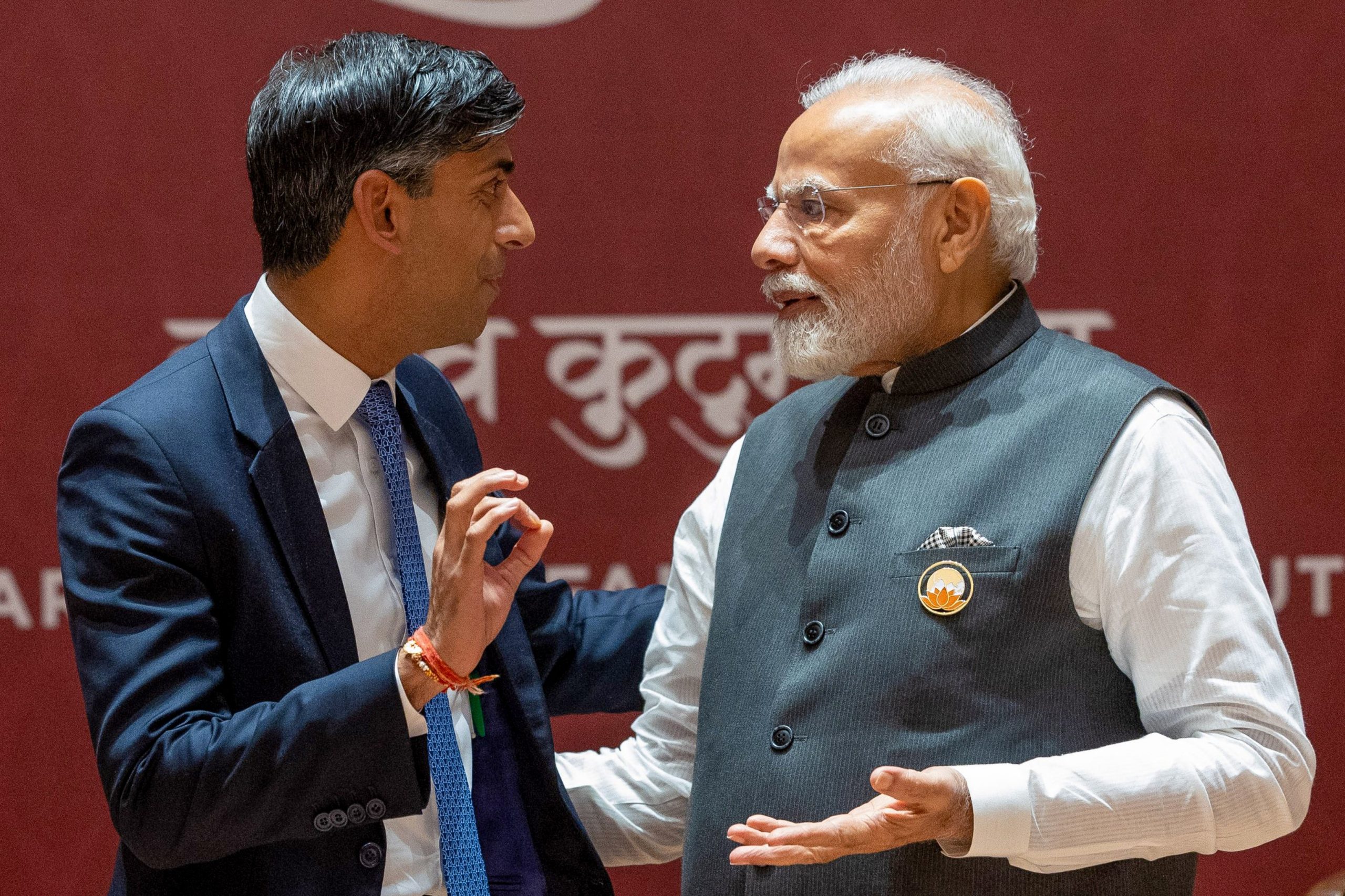- Wednesday, July 02, 2025
PM Sunak’s surprise poll announcement has dashed any hopes of the Conservative government finalising the highly anticipated pact with India, said one observer.

By: Shubham Ghosh
THE possibility of an India-UK free trade agreement (FTA) has been delayed following prime minister Rishi Sunak’s unexpected announcement of a snap election on July 4, just a month after India’s election results come out on June 4. Despite reassurances from political analysts and strategic experts that the bilateral relationship should remain stable regardless of the outcomes of either election, the narrow opportunity for a deal under the Sunak-led Tory government has been overshadowed by the electoral dynamics in both nations.
Negotiations over the deal opened in January 2022 and are aimed at significantly enhancing bilateral trade currently worth around 38.1 billion a year.
The opposition Labour Party, currently ahead of the ruling party in most pre-election polls, has pledged to complete the task, but specific timelines will remain unclear for the foreseeable future.
Read: Politicians urged not to use Muslims for UK electoral gains
According to Rahul Roy-Chaudhury, Senior Fellow for South and Central Asian Defence, Strategy, and Diplomacy at the London-based think tank International Institute for Strategic Studies (IISS), Sunak’s surprise announcement of a July 4 poll has dashed any hopes of the Conservative government finalizing the long-awaited and highly anticipated FTA with India.
The Labour, led by Kair Starmer and is widely expected to form the next government in the UK, has maintained steadfast support for such a deal, subject to an examination of the ‘fine print’ once it comes into office.
Read: Did Sunak call for early polls to get rid of cramped No.10?
The prospect for such a trade deal appears positive, providing an early boost to relations between the two new governments – the Labour and the widely expected third Modi government, he said.
Dr Chietigj Bajpaee, Senior Research Fellow for South Asia, Asia-Pacific Programme at Chatham House, called the FTA a key watchpoint for its broader strategic significance in terms of deepening the bilateral relationship.
There are 26 chapters in the FTA, including goods, services, investments, and intellectual property rights.
The Indian side is demanding greater access for its skilled professionals from sectors such as information technology and healthcare in the UK market, besides market access for several goods at nil customs duty.
The UK, on the other hand, is seeking a significant cut in import duties on goods such as scotch whiskey, electric vehicles, lamb meat, chocolates, and certain confectionary items.
There should be a high degree of continuity in UK-India relations, irrespective of who wins the UK election. Under Keir Starmer’s leadership, the Labour Party has tried to reset relations with India, which had deteriorated under [former leader] Jeremy Corbyn, Bajpaee said.
The UK’s engagement with India also needs to be understood within the wider framework of its Indo-Pacific pivot. However, there are doubts over the UK’s capacity to maintain this focus due to fiscal limitations and competing foreign policy commitments, including conflicts in Ukraine and Gaza, as well as efforts to rejuvenate relations with the European Union, which it left a few years ago.
An important facet of this UK election will be the participation of the country’s inaugural premier of Indian descent, who assumed office amidst internal upheaval within the Conservative Party in October 2022, as he goes to the electorate with his record at Downing Street.
The British Future think tank has projected that the next UK parliament is poised to be the most diverse to date, with major political parties nominating a significant number of candidates from ethnic minority backgrounds, potentially resulting in the election of at least 10 more MPs from diverse communities to the House of Commons.
While Labour is doing well overall in the polls, it’s got more challenges with ethnic minority voters as it faces challenges with Muslim voters over Gaza and Palestine, said Sunder Katwala, director of British Future.
For the Conservative Party, obviously, they have Sunak — a British Indian leader — for the first time.
It’s an unknown factor how much it will matter to British Indian voters that the leader of the party is from their background.
The likelihood is it will be a source of some pride, especially among older voters, but it’s unlikely to help with first-time and younger voters who take diversity in politics more for granted and are in an age where the Conservatives are struggling badly, he reflected.
The British Indian think tank, 1928 Institute, feels the British Indian vote is very much to play for, with the Conservatives very marginally ahead of Labour.
Our opinion is that this earlier-than-anticipated election will slightly benefit the Conservatives as the Labour electoral machine is still to reach and resonate with parts of the Indian diaspora, it said.
A summer rather than the expected autumn general election is viewed as a welcome move for ending a long period of uncertainty from a business and industry perspective.
Hinduja Group chairman G P Hinduja expressed hope for a definitive and unambiguous outcome in the election. This, he believes, would empower the new administration to effectively address the numerous challenges ahead and execute its strategy to steer the UK towards economic advancement and prosperity.
(With PTI inputs)